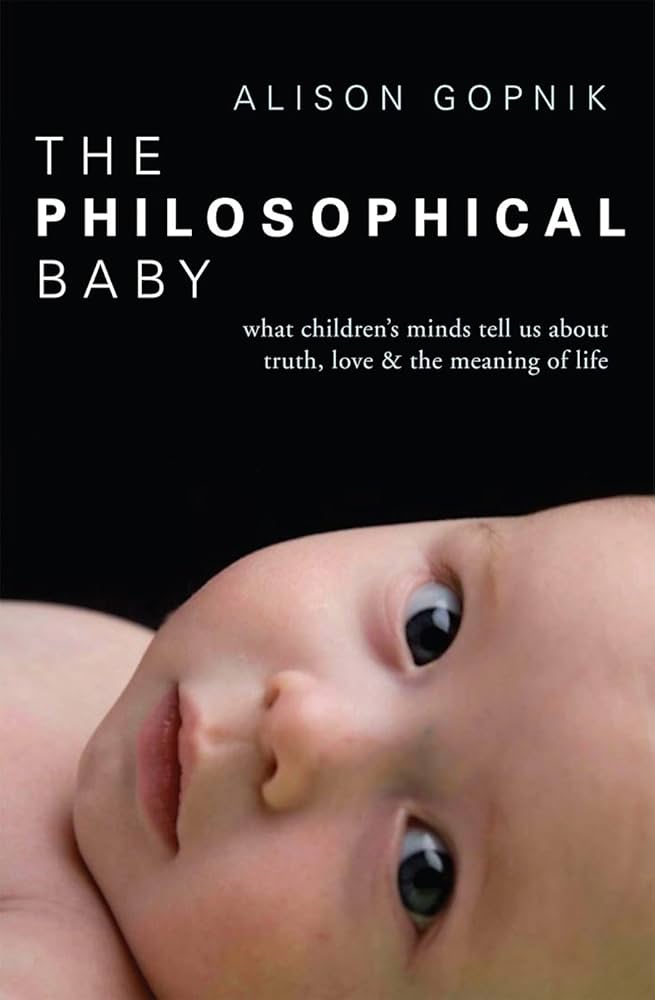
The Philosophical Baby by Alison Gopnik: Exploring the Minds of Babies
Alison Gopnik's book, The Philosophical Baby, is a profound exploration into the minds of babies. This book delves into the cognitive and emotional worlds of infants and young children, revealing their capabilities and potential far beyond what we might expect.
Introduction to The Philosophical Baby
In The Philosophical Baby, Gopnik presents a compelling argument that babies are more than just blank slates. They are active learners, constantly absorbing information and making sense of the world around them. Through her research, Gopnik shows that babies are not only learning but are also capable of complex thought and understanding.
The Cognitive Abilities of Babies
Gopnik's work highlights several key areas of cognitive development in infants:
| Age | Cognitive Milestone |
|---|---|
| 0-6 months | Recognizes faces, begins to develop a sense of self and other. |
| 6-12 months | Understands object permanence, starts to experiment with cause and effect. |
| 12-18 months | Begins to use words, can follow simple instructions. |
| 18-24 months | Shows increased memory, starts to understand symbolic thinking. |
Babies as Scientists
One of the most fascinating ideas in The Philosophical Baby is the notion that babies are like little scientists. They experiment with their environment, testing hypotheses, and learning from the results. Gopnik argues that this scientific approach to learning is a natural and essential part of human development.
Emotional Development in Infants
In addition to their cognitive abilities, Gopnik also explores the emotional lives of babies. She discusses how infants develop empathy and understanding of others' emotions, which are crucial for social development.
The Role of Play
Play is another significant theme in The Philosophical Baby. Gopnik emphasizes the importance of play in early childhood, not just as a form of entertainment but as a critical component of learning and development. Through play, children explore their environment, practice new skills, and build social connections.
The Philosophical Implications
Gopnik's work has profound philosophical implications. By understanding the minds of babies, we gain insights into the fundamental nature of human thought and consciousness. Gopnik suggests that by studying infants, we can learn about the origins of creativity, morality, and even philosophical inquiry.
Babies and the Concept of Self
One of the most intriguing aspects of Gopnik's research is her exploration of the concept of self. She argues that babies have a basic sense of self from a very young age, which develops and becomes more complex over time. This challenges traditional views that the self is a construct that emerges later in life.
The Impact of Environment
Gopnik also examines the impact of the environment on a child's development. She discusses how different parenting styles, cultural practices, and social contexts can influence a child's cognitive and emotional growth. This highlights the importance of providing a nurturing and stimulating environment for young children.
Practical Applications
In addition to its theoretical contributions, The Philosophical Baby offers practical insights for parents, educators, and policymakers. Gopnik provides advice on how to foster a child's development through supportive and enriching experiences.
Encouraging Exploration
Gopnik emphasizes the importance of encouraging children to explore their environment. This can be done through unstructured play, providing a variety of toys and activities, and allowing children the freedom to experiment and learn at their own pace.
Conclusion
The Philosophical Baby by Alison Gopnik is a groundbreaking work that challenges our understanding of infant development. By revealing the rich inner lives of babies, Gopnik shows that even the youngest among us are capable of complex thought, deep emotions, and significant learning. This book is a must-read for anyone interested in the nature of human development and the origins of our cognitive and emotional lives.
For more insights into similar topics, visit my website https://readreviewtalk.com/ and my blog https://readreviewtalk.com/blog/.



